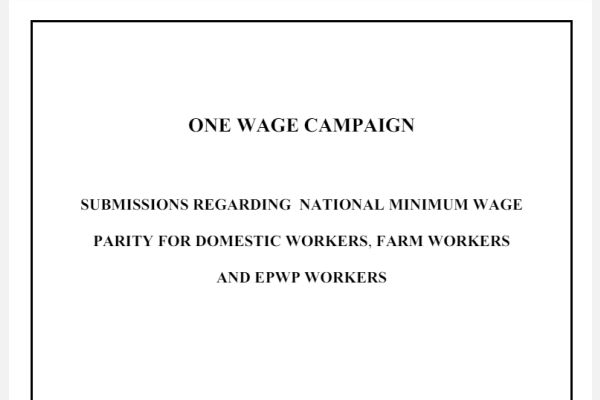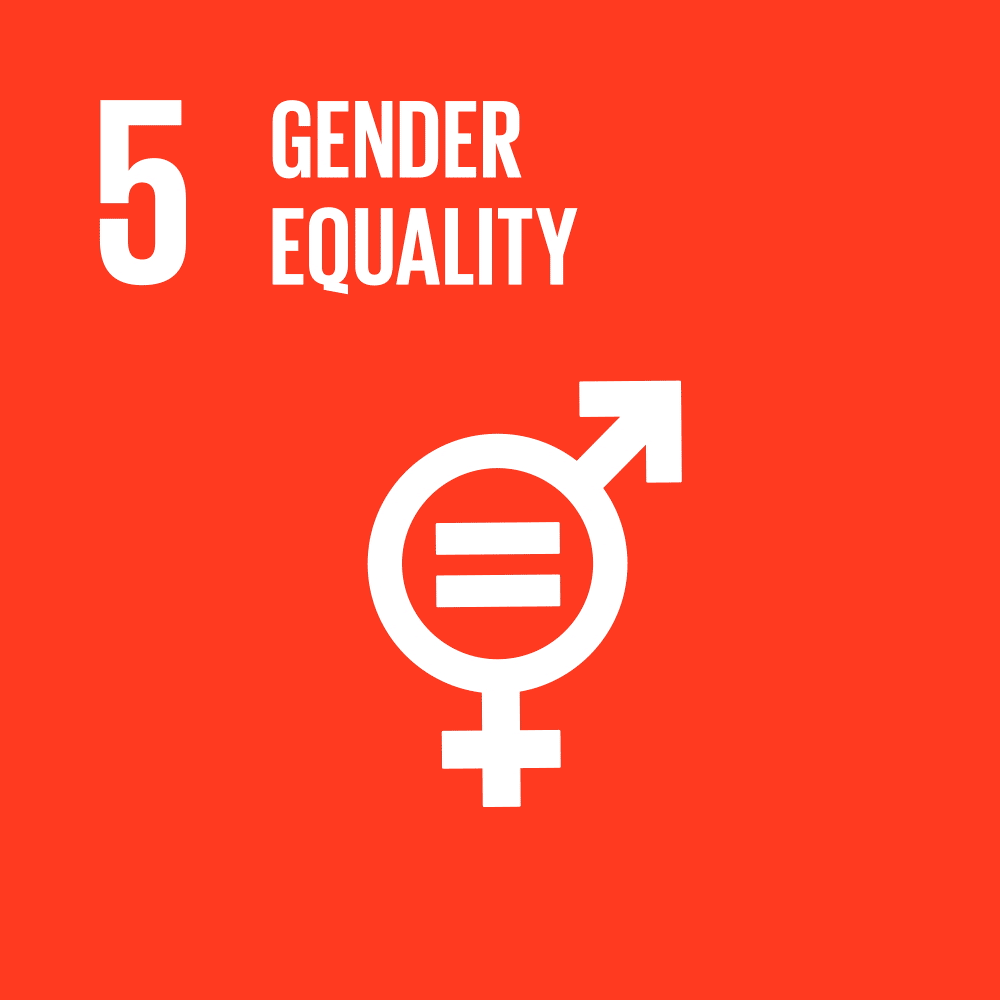Repository of Practices

One Wage Campaign (OWC)
Dates
Type of practice
Summary
The One Wage Campaign (OWC) was a coalition of workers’ rights organizations, and unions, and civil society organizations who united to advocate against the exclusion of domestic workers, farmworkers, and Expanded Public Work Program (EPWP) workers from the 2019 National Minimum Wage (NMW) Act. This practice focuses on the OWC’s advocacy efforts that led to the inclusion of domestic workers in the NMW in 2022.
An estimated 200,000 migrants work as domestic workers in South Africa. Domestic work is rooted in colonial apartheid, and its legacy continues with state-sanctioned poverty wages and societal discrimination. In general, migrant domestic workers face even more extreme levels of vulnerability in the workplace, with limited access to government support and social protection schemes, and without the networks and local assets of South Africa workers.
The stated purpose of the NMW Act is “to advance economic development and social justice” by, among other things, improving the wages of lowest paid workers. Domestic and farmworkers were officially considered “ultra-low” paid workers. In 2020, the NMW was set at R20 per hour. While already deemed an unlivable wage, domestic workers were only entitled to 75% of the NMW, at R15. The OWC argued that all workers should be entitled to the full national minimum wage, which would provide a foundation for improving the exploitative conditions of the sector, and increasing the status of workers in the country.
In November 2019, the OWC made legal submissions to the NMW Commission, pointing out the Constitutional and international violations the Commission incurred as a result of tiering minimum wages. Included in the 2019 submission was an economic assessment contesting the claim that a wage increase would lead to higher unemployment in the sector. The OWC also noted that while the NMW is a threshold to meet in achieving wage parity, it is grossly inadequate for a dignified standard of living. A second submission was made to the NMW Commission in response to the 2021 amended wage (which gave domestic workers 90%). In 2022, the NMW Commission finally changed the law to require that domestic workers be paid the full minimum wage.
Organizations
Main Implementing Organization(s)
Partner/Donor Organizations
Benefit and Impact
Globally, domestic work is often seen as not “real” work but is looked down on as women’s work. Excluding domestic workers and farm workers from the full minimum wage perpetuates a history of discrimination, indicating to employers and the public that they do not qualify as workers. By codifying their labour into the NMW Act, it provides a signal to employers that domestic workers are entitled to protections just as any other worker is.
Finally, in addition to improving the status of domestic workers, increasing the minimum wage had and continues to have tangible benefits across the sector in the form of much needed higher earnings for workers. These will carry on for the foreseeable future, impacting the quality of life for South Africa’s migrant domestic workers and the families they support.
Key Lessons
With support from funders the OWC was able to engage a communications consultant to lead a media campaign, with a focus on community radio. There was strong uptake from media across sectors, including radio, TV, print media, and online media covering the campaign efforts. Media, and mobilizing social opinion,
Notably, a key lesson learnt was to ensure a cohesion between the de jure and de facto laws; while an act may be signed into law (de jure), it may not actually be the case on the ground (de facto). Unfortunately, many domestic workers continue to make less than the NMW today often due to the informal nature of such work and being taken advantage of due to migrant status. It is critical that efforts to call for wage parity continue even after laws are passed, and that civil society mobilize to place checks and balances on government actors to ensure protections are in place for the most vulnerable in society.
Recommendations(if the practice is to be replicated)
Providing qualitative and quantitative data is equally as important in advocacy. The OWC had economic studies conducted and analyzed both in South Africa and in other countries. This comparison helped contextualize the issue, while also providing quantitative data to governmental bodies to showcase that, contrary to its belief, stimulus measures would actually be beneficial both for wage parity and the economy. In addition to the economic analysis, it included an annex of direct quotations from domestic and farmworkers, relaying in their own words their perspectives on the national minimum wage.
Innovation
Additional Resources
Date submitted:
Disclaimer: The content of this practice reflects the views of the implementers and does not necessarily reflect the views of the United Nations, the United Nations Network on Migration, and its members.
More Related Practices:
- Social Security Extended for Migrant Domestic Workers in Malaysia
- Research on human rights violations against live-in domestic workers, and related Code of Good Practice
- One Wage Campaign (OWC)
- Migrant Domestic Workers Rights on the Threshold of Czech Households
- Domestic Workers League of ACV-CSC Brussels
Peer Reviewer Feedback:
*References to Kosovo shall be understood to be in the context of United Nations Security Council resolution 1244 (1999).
Newsletter
Subscribe to our newsletter.


